A good sequel is one that sees the original as a jumping-off point, something to build on, while a bad sequel is one that merely wallows in the original, as a means of “paying respect”.
I left Blade Runner 2049 feeling an odd mix of amazement, and incredulousness. I knew I had to think on this movie, before writing this. And now that I have, I can firmly say, Blade Runner 2049 is, without the shadow of a doubt, THE best movie of 2017. Sorry, Nolan fans. It’s true. Dunkirk doesn’t even come close, nor does any other movie that was released so far.
‘Blade Runner 2049’ does to sci-fi, what ‘Mad Max: Fury Road’ did to action. It gives the genre a much-needed shot of adrenaline, to keep it going. Calling it the best sci-fi movie of the year sure is a lofty claim, but it’s true. It lacks the pretension of Interstellar (the last half hour of it, though), the sloppiness of Ghost in the Shell, whose manga was, ironically, influenced by the original Blade Runner, and it lacks the cheesiness of modern franchise blockbusters. Which is a good thing. It’s slick. It’s taut. And it just works. Beautifully.
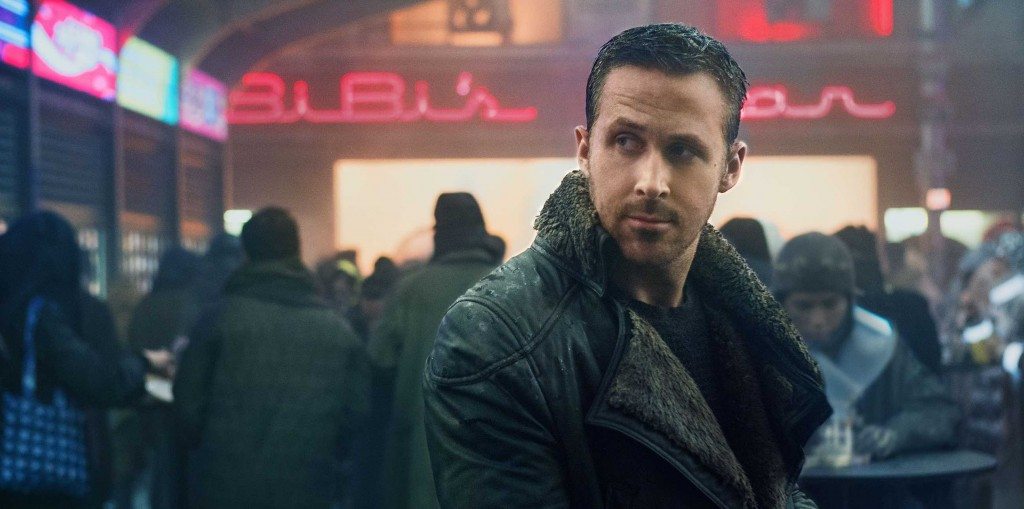
Now, Denis Villeneuve himself asked of the early reviewers to not reveal any plot points, or threads in their reviews, for fear of plot leaks, or early spoilers. I concur. I knew nothing of the plot, and watching it unfold left my jaw dropped, in awe of what was going on, and what was being revealed. I respect that. And so, this is not going to contain any major plot spoilers. Rest assured.
To kick it off, it must be acknowledged, that Villeneuve and his crew, have done a phenomenal job with the movie. There were so many ways a Blade Runner sequel might have backfired horribly. The rage of the fans and supporters of the original would have been nothing short of nasty, had this movie failed. In all honesty though, Blade Runner didn’t really need a sequel. It left its ending just ambiguous enough, so as to not warrant a sequel, and let us decide for ourselves. Was Deckard a Replicant? Why did Gaff leave the unicorn? Do they share memories? Why did he leave Rachael alive? Where do they go? These were probably the questions going through the minds of those who watched the original (the Final Cut, actually) and were blown away by it.
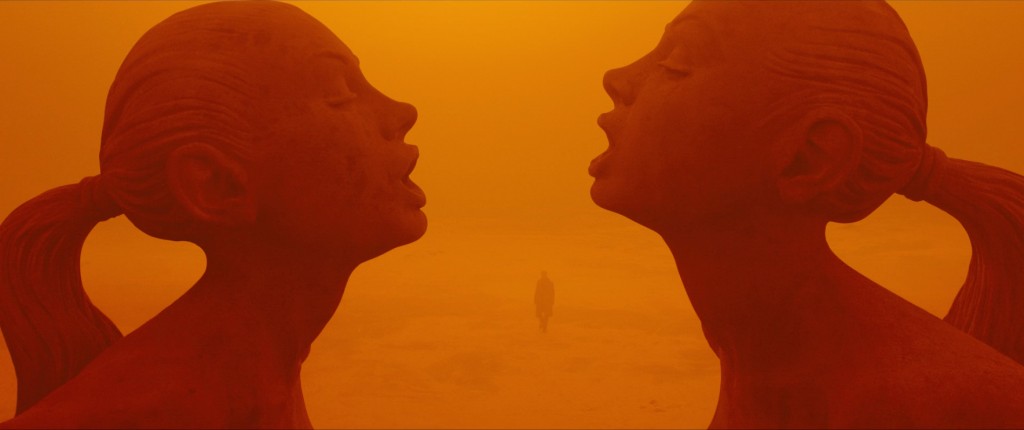
We really didn’t need a sequel, explaining every little detail of it. And thankfully, this isn’t such a sequel, though it (seemingly) answers some of those questions. It builds on the original, something very few sequels do. The have made an entirely unnecessary sequel, to one of the greatest movies ever made, into one of the greatest sci-fi movies of all time. And that’s no small feat.
If it hasn’t been said already, I’m saying it. Roger Deakins is THE greatest cinematographer of our time, maybe forever. The man’s been nominated 13(!) times, but hasn’t won it. 2049 is sure to change that, as the entire movie is dripping in visual beauty. The only real competition it has, in the race for the Oscar for Best Cinematography, is Dunkirk, but then again, Blade Runner is an overall better movie. And it’s hard for the Academy to ignore Deakins’ contributions. Enough of my rant. Talking about the look of the movie, it is down to a T. It builds on the original’s visuals, and makes it a leaner, meaner, and darker looking film. The sets are jawdropping. The visuals are gorgeous. The entire movie is eye-gasmic. The One Perfect Shot Twitter handle is going to have a field day with this movie.
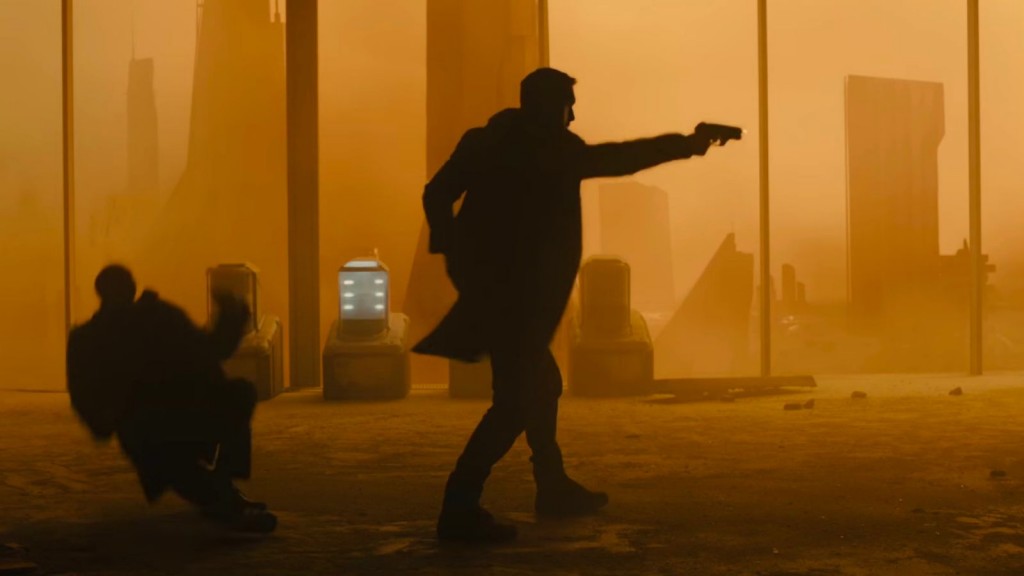
Talking of the look and feel, one thing about it I really loved, was how it mirrored the original, almost in every scene. I’m going to indulge in slight spoilers here, but nothing major.
The OG Blade Runner opened with the shot of the LA skyline, with furnaces going off, and its reflection in an eye. 2049 opens in almost the exact same way, with the shot of an eye, but instead of the skyline, we have a solar farm. This does a great job, in it, it tells us how time has passed in the Blade Runner world, and how the people have embraced the future. Then there’s an interrogation scene, between Ryan Gosling, and….someone, similar to the one between Holden and Leon in the first, but here the outcome is different. And the ending too, was similar to the heartfelt Tears in Rain monologue at the end of the original Blade Runner, by similar, I mean that it takes place in the rain, and nothing else. Niander Wallace’s office also resembles Tyrrell Corp’s office from the first one. It’s a little too similar, to be a coincidence. Also, it must be said, that 2049 contains, possibly the weirdest lovemaking scene in ANY movie. Watch it for yourself.
Special mention needs to be given to Luke Scott, and acclaimed anime director, Shinichiro Watanabe, for directing the prequel shorts, 2036, and 2048, and 2022, respectively. These shorts go a LONG way in establishing the universe of Blade Runner 2049. I highly recommend those shorts, even to those of you who won’t be watching the movie. 2036 and 2048 were the live action shorts, directed by Scott. In 2036, Jared Leto’s character, Niander Wallace, is seen trying to convince a jurisdictional panel, that his bioengineered androids are much more subservient, than the Tyrell line of replicants. 2048, shows Bautista’s character, who seems to be tormented by things he’s done, or was forced to do (it’s revealed in the movie what happens). He’s seen protecting a mother and her daughter from thugs, but while fending the thugs off, he inadvertently gets his cover blown, and this sets in motion the chain of events of the movie. Bautista’s acting here is excellent, thankfully it carries on into the movie.
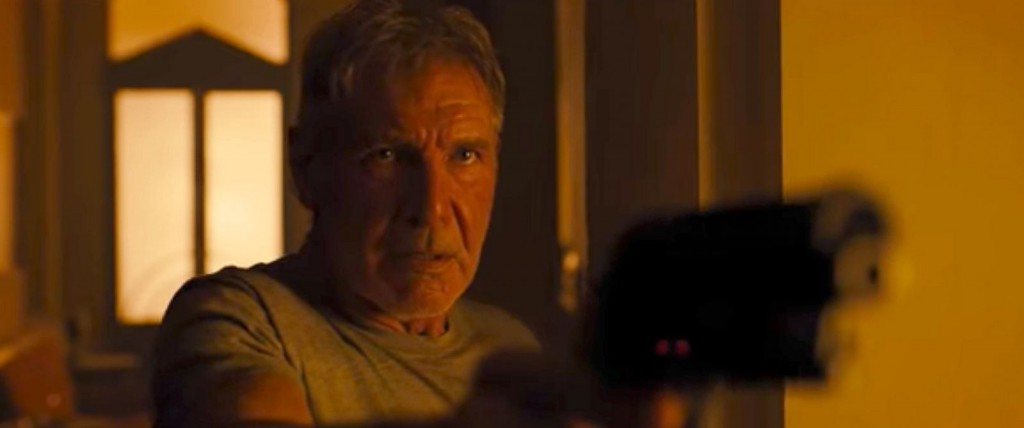
But the one I loved the most, was the anime short, by Watanabe. 2022 tells of the EMP blackout in Los Angeles, which erased Tyrell Corp’s data, thus effectively erasing any data about the replicants. This was due to the unrests, caused by the humans against the replicants. Why I love this the most, is because, while 2036 and 2048, were great in their own right, they didn’t really explain how things got from A to B. But 2022 is the bridge. The missing link. And it’s the longest of the three.
Coming to the core – the writing. Hampton Fancher, the writer of the original, teamed up with Michael Green, who wrote this year’s brilliant Logan, and thus, wrote what is the frontrunner for Best Original Screenplay. It wastes no time in introducing the key players, and by setting the stakes – which it does really early on, in the movie. While it does run for nearly 3 hours, which might be a problem to some, and could’ve used better editing. Three hours can be a lot, especially during the slower moments, when long discussions are going on.
The acting, across the board, is top-notch. Ryan Gosling, as K, is excellent, and Harrison Ford’s return as Rick Deckard, is a welcome surprise. Apart from them, the supporting cast too, is excellent. Won’t be surprising if the movie wins a Best Ensemble award.
To wrap it up, this movie blew me away. The various twists and turns constantly kept me on the edge of my seat. And there definitely is more, judging by the gobsmacking ending. Blade Runner 2049 is why movies are made. It’s why we love movies.

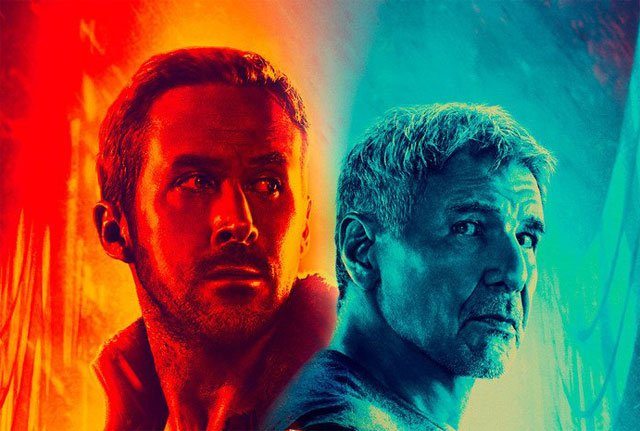
You must be logged in to post a comment.